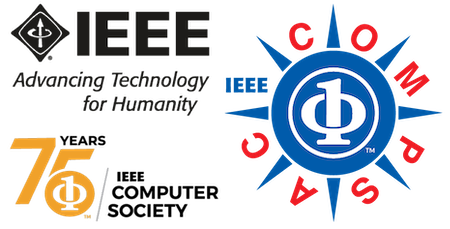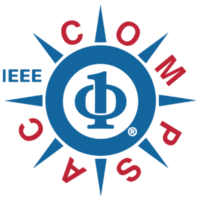The 1st IEEE International Workshop on Dynamic Data Science & Big Data Analytics in Finance (DDS-BDAF 2021)
Call for Papers
DDS-BDAF 2021 aims to foster cooperation among academics, researchers, and practitioners in dynamic data science applications in computational finance. This workshop will enable exchange of ideas on latest industrial experience for novel forecasting models, dynamic modeling of big data in finance, developing novel filtering, smoothing and forecasting algorithms for algo trading, machine learning and risk management.
Today, principles of computational finance are combined with advanced mathematical structures and dynamic data science to form useful financial models, strategies and products that are tested and implemented with the use of novel quantitative techniques such as smoothing/filtering/forecasting.
Use of computing technology is pervasive throughout this process.
Computational Finance is an area referred to under a variety of names, for example, ‘financial engineering’, quantitative finance, and ‘mathematical finance’. In all cases there is an effort that involves ‘financial’, ‘mathematical’, ‘quantitative’ and ‘computational’ thinking to build, test and implement models that are at the center of financial activities. In the last decade, Computational Finance (CF) has influenced the market place extensively with enormous impact on wealth building, employment opportunities, and tremendous economic growth. This field forms an ever-expanding part of the financial sector, in numerous ways today. Use of high performance computers for research in computational finance has grown steadily in the last decade especially due to large volume of data to be analyzed. The time is ripe to collect these researchers to exchange their ideas, models and results through a conference meeting. This workshop will be a first such effort in bringing together researchers in the area of finance (i) who design and develop data-driven, data-centric and other models at a venue where computers, software and applications are the fundamental threads of discussions and arguments. Machine Learning (ML) has become an essential part in finance industry for many decision processes including algo trading. Supervised learning is the most widely utilized form of machine learning. Its goal is to predict the response from the associated features. Regularization puts extra constraints on a machine learning model and enhance the predictive performance of the dynamic models, and these constraints and penalties are designed to encode specific kind of prior knowledge. Algorithmic trading uses these concepts to place a trade and generate profits at a speed and frequency that is impossible for a human trader. As the models and techniques are developed and published, algo trading is becoming a tool for common investors for online trading, which otherwise has been a profitable trading strategies for professional traders. This workshop will further this direction of research.
The papers to be presented at the workshop will (i) expose the COMPSAC attendees to an emerging and somewhat “new” activity (dynamic risk management, algo trading etc.) in Computer Science and excite them first; (ii) examine the problems in finance and bring out computing and data challenges these problem pose and how data analytics knowledge and practice could be employed to various problems in finance.
The papers to be presented at the workshop will cover fundamentals of finance (for example, algo trading, pricing options and other derivatives, risk management strategies etc.), introduce the computational issues therein and report latest findings and understanding of financial results that would not have been possible without the use of big data analytic models and approaches. Computer scientists, engineers and others participating in this workshop, with or without any finance background will be able to familiarize themselves with the area of finance, expose themselves to various financial markets and will get a first-hand experience of formulating finance problem into a computational problem. They will also witness live discussions on various topics, for example, value-at-risk (VaR) analysis, risk management, portfolio management, Black-Scholes model for option pricing and beyond, difficulties in solving the resulting stochastic partial differential equation, various numerical techniques resorted to (for example, binomial lattice, finite-difference, fast Fourier transform, Monte Carlo simulation and others), handling big data in these different problems in finance and employing multi-core computers and algorithms on the above methods and techniques.
The main objective of this new workshop this year is to provide attendees with the basics of finance models, theoretical understanding and practical implementation of the models. Stronger discussions will result out of the presentations and the experience could lead them into the formulation, implementation of the models used by the practitioners in financial sector.
Important Dates
Workshop papers due: 21 April 1 May 2021 (UPDATED)
Workshop paper notifications: 15 May 2021
Camera-ready and registration due: 31 May 2021
Authors are invited to submit original, unpublished research work, as well as industrial practice reports. Simultaneous submission to other publication venues is not permitted. In accordance with IEEE policy, submitted manuscripts will be checked for plagiarism. Instances of alleged misconduct will be handled according to the IEEE Publication Services and Product Board Operations Manual.
Please note that in order to ensure the fairness of the review process, COMPSAC follows the double-blind review procedure. Therefore we kindly ask authors to remove their names, affiliations and contacts from the header of their papers in the review version. Please also redact all references to authors’ names, affiliations or prior works from the paper when submitting papers for review. Once accepted, authors can then include their names, affiliations and contacts in the camera-ready revision of the paper, and put the references to their prior works back.
Formatting
Workshop papers are limited to 6 pages. Page limits are inclusive of tables, figures, appendices, and references. Workshop papers can add an additional 2 pages with additional page charges ($250USD/page).
Paper Templates
IEEE Paper templates are available in MS Word 2003 and LaTex. All submissions must use US 8.5×11 letter page format.
Note: If the submission link does not appear on EasyChair after logging-in, please click the above button again.
Workshop Organizers
Dr. Ruppa K. Thulasiram, University of Manitoba, Canada
Email: tulsi.thulasiram@umanitoba.ca
Dr. A. Thavaneswaran, University of Manitoba, Canada
Email: aerambamoorthy.thavaneswaran@umanitoba.ca
Program Committee
S.S. Appadoo, University of Manitoba, Canada
Amir Attiya, Egypt University of Cariso, Egypt
Roseangela Ballini, The University of Campinas, Brazil
Peter A. Beling, University of Virginia, USA
J. Campolioti, Wilfred Laurier University, Canada
Roy Freedman, Inductive Solutions and New York University, New York
Chengui Kai, Jinxin Finance LLC, New York, NY
Uzay Kaymak, Eindhoven University of Technology, Netherlands
You Liang, Ryerson University, Canada
Takanobu Mizuta, SPARX Asset Management Co., Ltd., Japa
A. Nanthakumar, State Univ. of New York Oswego, New York
Giray Okten, Florida State University, USA
Viji Pai, PSG College of Technology, Coimbatore, India
Alex Paseka, University of Manitoba, Canada
Shelton Peiris, Univ. of Sydney, Australia
V. Ravi, IDRBT, Hyderabad, India
Mahendaran Shitan, Heriot Watt University, UK
Ashok Srinivasan, University of West Florida, USA
M. Thenmozhi, Indian Institute of Technology, Chennai, India
Alan Wagner, University of British Columbia, Canada
Xin-She Yang, Middlesex University London, UK
Lingjiong Zhu, Florida State University, USA
Advisory Committee
Amir Atiya, University of Cairo, Egypt
Anthony Brabazon, University College Dublin, Ireland
Joe Campolioti, Wilfred Laurier University, ON, Canada
Mary Thompson, University of Waterloo, ON, Canada
Sanjiv Das, Santa Clara State University, CA, USA

